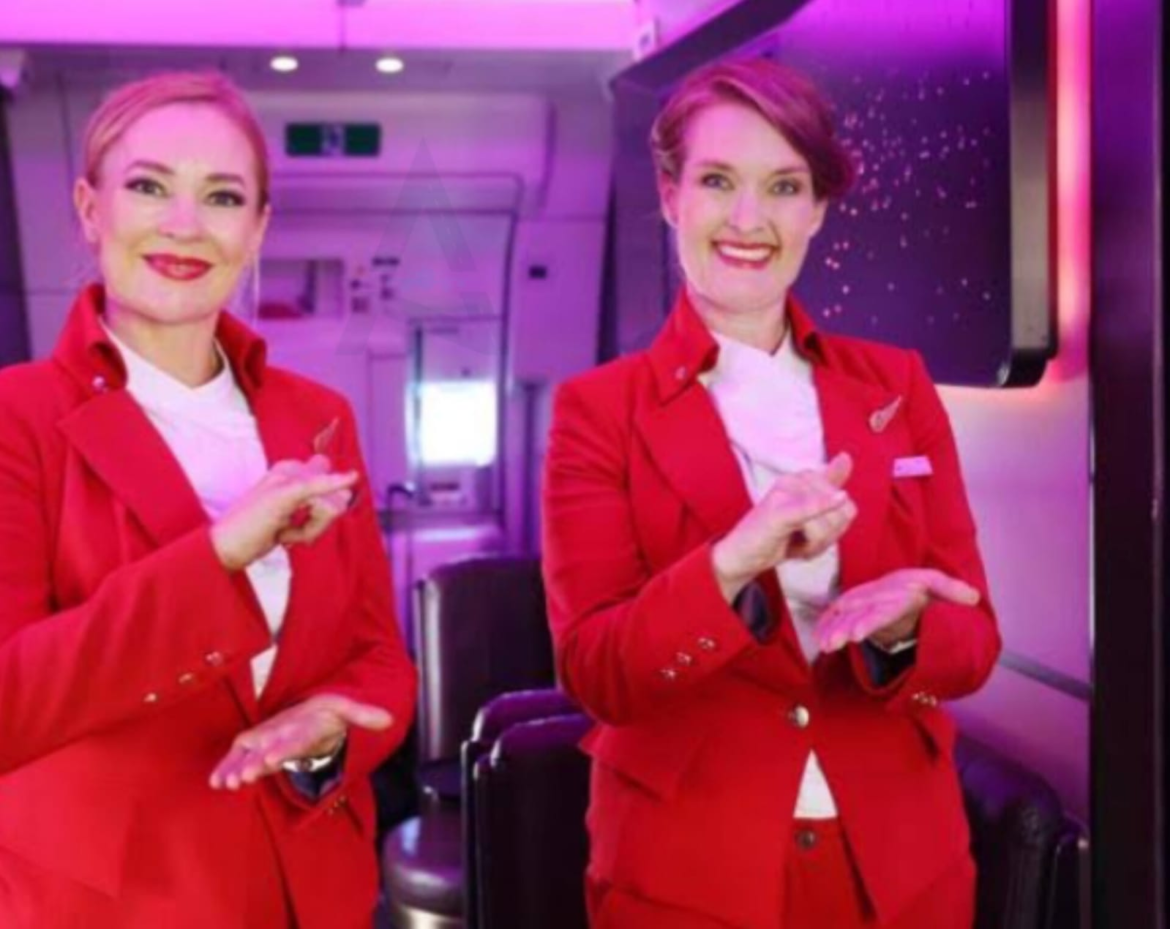Virgin Atlantic has taken a significant step towards inclusivity by teaming up with Jodie Ounsley, a star from the popular television series “Gladiators,” and various influencers to become the first UK airline to train its cabin crew in sign language. This groundbreaking initiative reflects the airline’s commitment to ensuring that all passengers, regardless of their communication needs, feel welcomed and valued during their travel experiences.
By equipping cabin crew with sign language skills, Virgin Atlantic is enhancing its service for the deaf and hard-of-hearing community, making air travel more accessible and enjoyable. This initiative not only demonstrates the airline’s dedication to inclusivity but also sets a precedent for the aviation industry, encouraging other airlines to consider similar measures to cater to diverse passenger needs.
Jodie Ounsley, who is herself deaf, has been a passionate advocate for inclusivity and representation. Her involvement in this initiative adds authenticity and visibility to the campaign, showcasing the importance of having diverse voices in the conversation about accessibility. Collaborating with influencers further amplifies the message, reaching a wider audience and raising awareness about the challenges faced by those with hearing impairments when traveling.
The training of Virgin Atlantic’s cabin crew in sign language will allow them to communicate more effectively with deaf passengers, ensuring that they receive essential information about safety procedures, flight updates, and in-flight services. This enhancement in communication not only improves the overall travel experience for these passengers but also fosters a more inclusive environment on board.
This initiative is part of a broader trend within the airline industry to prioritize accessibility and customer experience. By recognizing and addressing the unique needs of different passenger demographics, airlines can build loyalty and trust among their customers. Virgin Atlantic’s leadership in this area exemplifies how the airline industry can embrace diversity and inclusivity, paving the way for a more equitable travel experience for all.
Moreover, as travel resumes globally, the need for inclusive practices becomes increasingly important. Many individuals with disabilities face numerous barriers when it comes to travel, and initiatives like Virgin Atlantic’s can help break down these barriers. By fostering an environment where every passenger feels understood and supported, the airline not only enhances its reputation but also contributes to the broader societal goal of inclusivity.
The commitment to training cabin crew in sign language also highlights the importance of ongoing education and awareness within the airline industry. Understanding the diverse needs of passengers is essential for delivering exceptional service, and such training programs can cultivate a culture of empathy and understanding among staff.
In conclusion, Virgin Atlantic’s collaboration with Jodie Ounsley and influencers to train its cabin crew in sign language marks a significant milestone in the airline industry. This initiative not only enhances the travel experience for deaf and hard-of-hearing passengers but also sets a powerful example for other airlines to follow. By prioritizing inclusivity and accessibility, Virgin Atlantic is redefining what it means to be a customer-centric airline in today’s diverse world. As the travel industry continues to evolve, such initiatives will play a vital role in ensuring that all passengers can enjoy their journeys without barriers.

